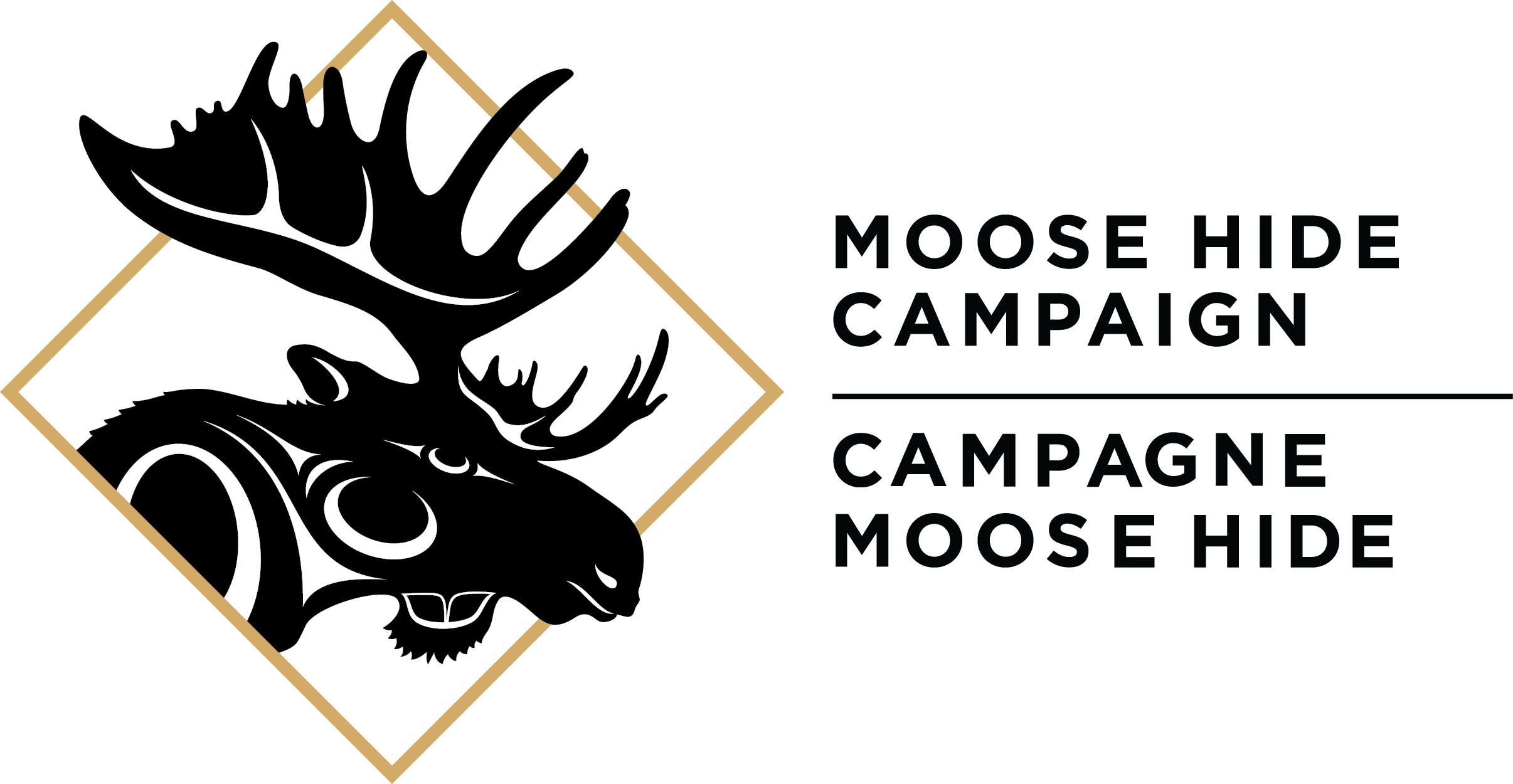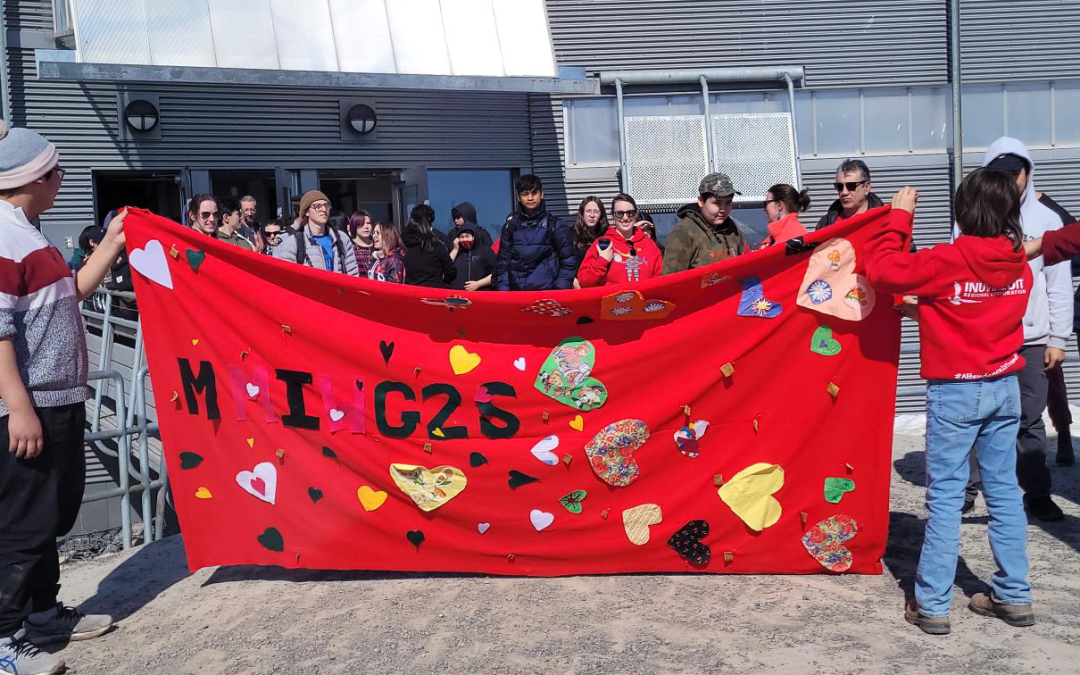For the community of Inuvik in the Northwest Territories, Moose Hide Campaign Day was heavy yet powerful.
At the beginning of May, an LGBTQIA2S+ man from a community near Inuvik went missing. After endless searching, he has still not been found.
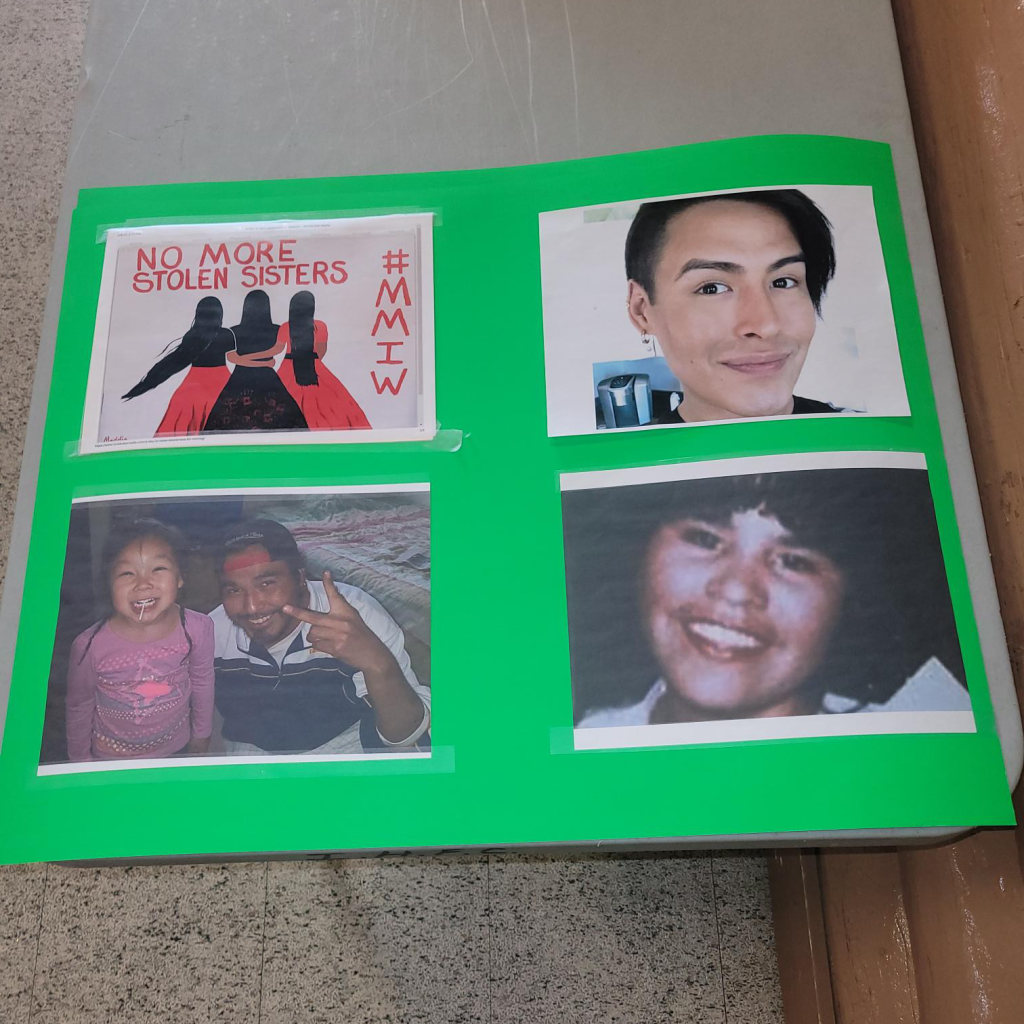
Frank Gruben is a Gwich’in Inuvialuit from Aklavik who was attending college in Fort Smith at the time of his disappearance. Many community members who came out to the Moose Hide event in Inuvik brought the spirit of 30-year-old Gruben with them, acknowledging that abuse and violence can affect anyone in their small communities and that it must stop—now.
Amanda Pokiak is a community health representative for the community of Inuvik. She organized the local Moose Hide Campaign Day event, which included drumming, a Walk to End Violence, bingo and a talk by MLA Lesa Semmler, who lost her own mother to domestic violence. The event concluded with a gathering at the community hall, where an Elder spoke.
Pokiak put a picture of Gruben on her Walk to End Violence sign as a message: we must shine a light on all the abuse that’s happening in our community.
“Frank is part of the gay community. He’s loud and proud. He’s gorgeous. He owns it,” said Pokiak. “The police told everyone to look for him. The community searched everywhere. It’s a small town, and there’s just no trace of him.”
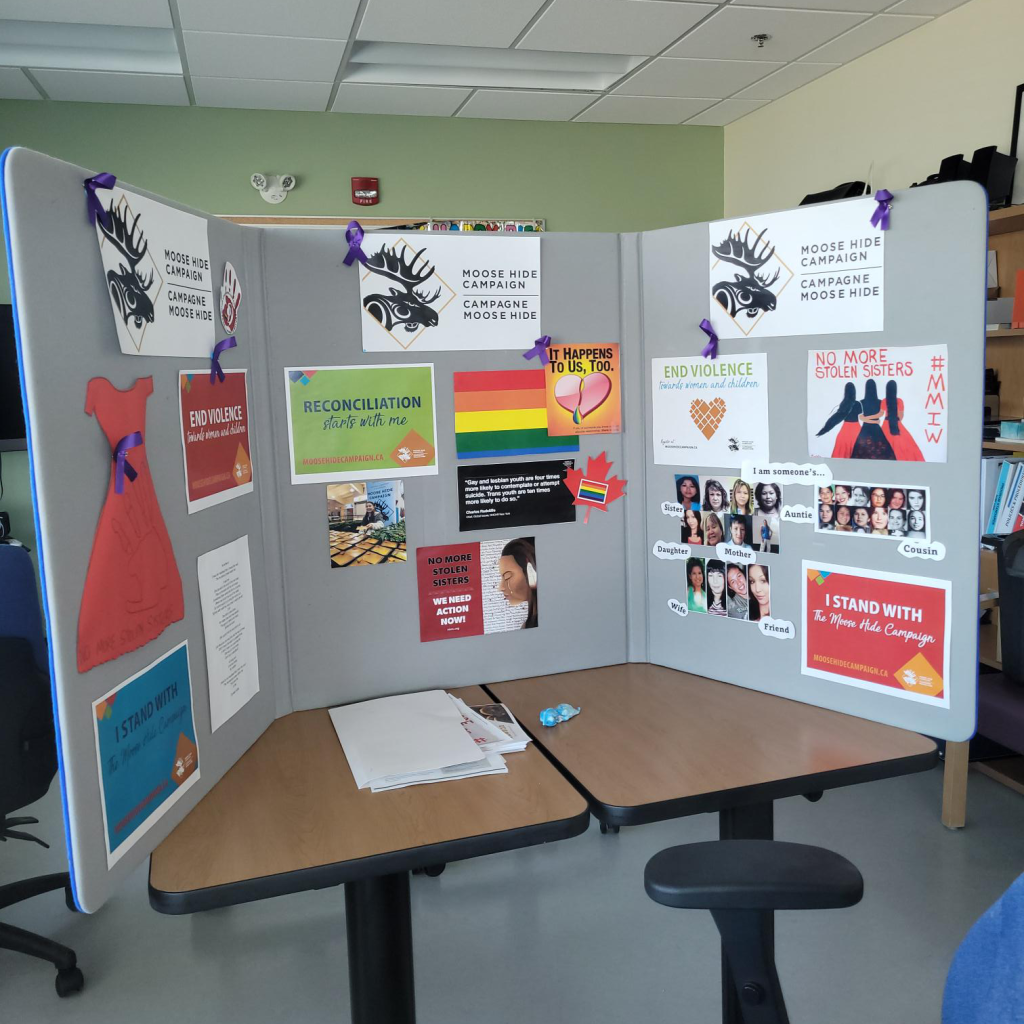
Pokiak knows how important it is to put an end to violence against women, children, and all those along the gender continuum. This sort of violence is sadly still happening in her small community. She and the Elders in Inuvik also know that violence is complex, and we must support everyone who is affected — including Two-spirit folks and men.
Pokiak’s own brother went missing from Whitehorse, Yukon, in 2016. He has still not been found.
“There’s really no light shone on the men,” said Pokiak. “My mom has never been the same since my brother went missing. Where is he? This time of year, in the spring, when the rivers start melting, it’s really traumatizing all over again. When the news talks about bodies being found in the Yukon River, you just wonder, is this my brother?”
The Elders in Inuvik also stressed that we must support the perpetrator’s family, as they often struggle in silence. A mother of an abuser is likely to live in shame and guilt. She might not even feel comfortable being out in her own community. Yet, there is little support for someone in this position.
“The Elders really wanted us to think about people like this. They never committed the crime, but they feel like they’re being punished for it.”
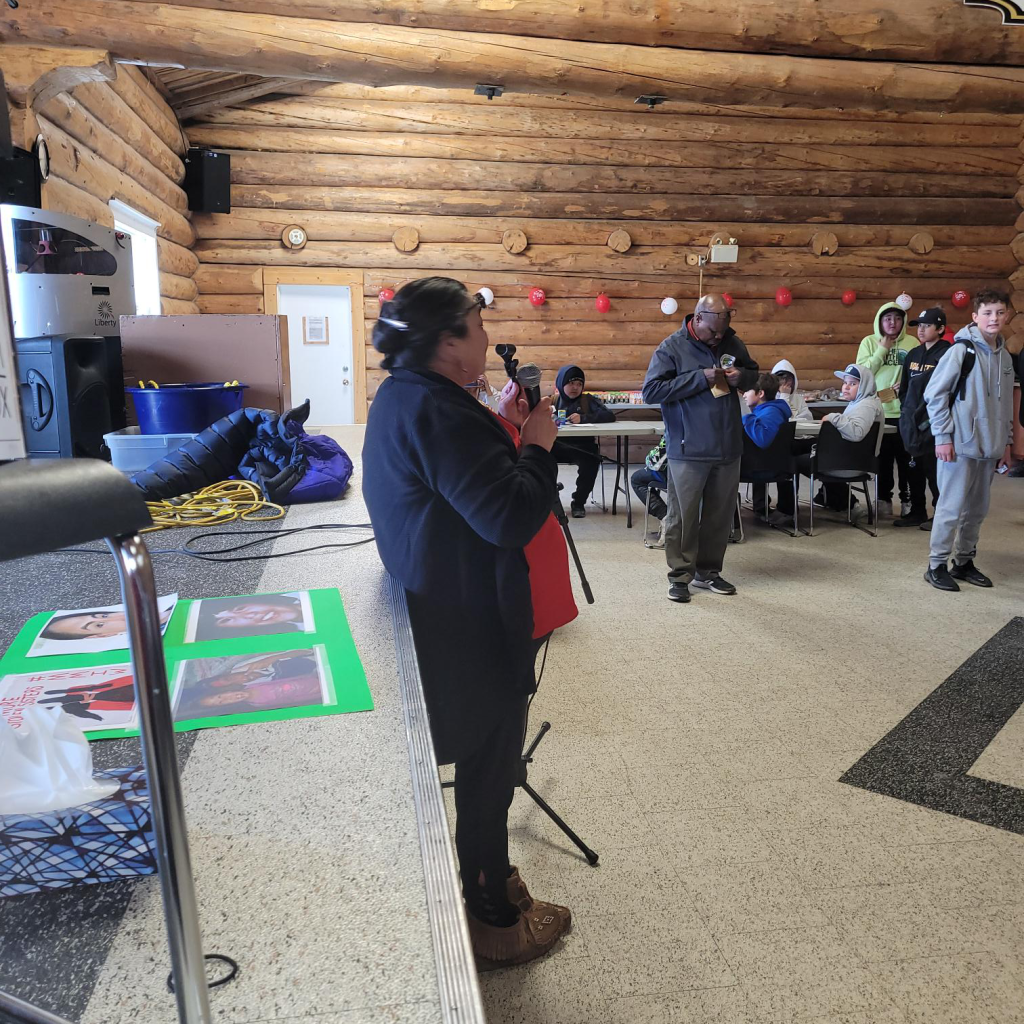
Hundreds of people in Inuvik rallied together on Moose Hide Campaign Day, marching through the streets for the Walk to End Violence and gathering in the community hall for a standing-room-only event. Pokiak had a display board with pictures of Missing and Murdered Indigenous Women and Girls in the hall. Above, she wrote the words: we are more than just pictures.
“That’s powerful, having the face of the missing right there,” she said. “That’s somebody’s mom, somebody’s sister, somebody’s daughter.”
Throughout the event, Pokiak made her way through the crowd, giving out moose hide pins and explaining their significance. She told the men that wearing the pin meant they were promising to keep the women and children in their lives safe. It also means that they are committing to be a safe space for any woman who is being abused.
Pokiak felt strong and resilient throughout the whole day of events. She gave it all her energy and plans to host an event every year. Yet, after the day was over, she needed time to decompress and process her heavy emotions.
“It’s just so close to my heart, with my brother and Frank,” she said. “I let everybody know that day that I’m not going to tolerate abuse. I was loud and proud. I refused to be quiet.”
